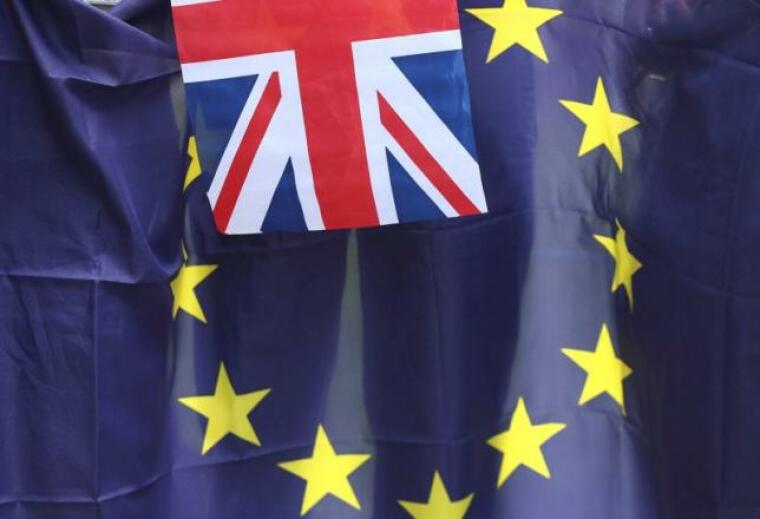Hundreds of Christians prayed for Britain's healing as EU referendum took place
Hundreds of Christians gathered in Parliament Square on the eve of the politically contentious EU referendum Wednesday, June 22 and prayed for their nation's healing no matter the outcome.
The prayer rally set in the heart of London started its hour-long worship and prayer from 7 to 8 p.m. as part of the so-called 7:14 prayer meetings, named after a Biblical verse taken from 2 Chronicles 7:14.

Associate vicar of St. Dionis in Fulham, Rev Patrick Allerton, said the prayer gathering was tuned to encourage Christians to be more involved politically even if only to pray for political events.
"It is about being a city on a hill and a lamp on its stand," Allerton told Christian Today about the Christians' political engagement.
He said it is a Christian's responsibility to involve oneself in the political process of the land because the Christian faith itself started as a political statement when the early believers proclaimed Jesus Christ as the Lord.
"We need to be engaged in politics because that is how the world is run and we want it to be run as close to God's will as possible," Allerton said.
The Church of England also encouraged Christians through a campaign back in April to pray for the contentious political debate that could dramatically set the nation's future.
Archbishop of Canterbury Justin Welby, who announced he would vote to remain while clarifying that he didn't mean to "tell others how to vote," wrote to Daily Mail that it is the vision of being "builders of bridges, not barriers" that lies at the center of the nation's Christian heritage.
Hours after the prayer gathering, the polls opened the next morning at 7 a.m. until 10 p.m. as the nation's almost 46.5 million registered voters made their decisive choice whether the United Kingdom will remain as member of the European Union or start the British Exit popularly dubbed as Brexit.
Ultimately Britain voted to leave the European Union on Thursday in a move that has stunned global markets and currencies. Although the result is a drastic one, the withdrawal from the EU needs to first be passed through the British Parliament to be made official, and then the Prime Minister must trigger Article 50. Upon triggering Article 50, a minimum two year process will commence for negotiations to take place to ensure a smooth as possible transition for Britain and the European Union, where all the details of the exit will be debated and agreed upon.
 Christians don't have to affirm transgenderism, but they can’t express that view at work: tribunal
Christians don't have to affirm transgenderism, but they can’t express that view at work: tribunal Archaeology discovery: Medieval Christian prayer beads found on Holy Island
Archaeology discovery: Medieval Christian prayer beads found on Holy Island Presbyterian Church in America votes to leave National Association of Evangelicals
Presbyterian Church in America votes to leave National Association of Evangelicals Over 50 killed in 'vile and satanic' attack at Nigerian church on Pentecost Sunday
Over 50 killed in 'vile and satanic' attack at Nigerian church on Pentecost Sunday Ukrainian Orthodox Church severs ties with Moscow over Patriarch Kirill's support for Putin's war
Ukrainian Orthodox Church severs ties with Moscow over Patriarch Kirill's support for Putin's war Islamic State kills 20 Nigerian Christians as revenge for US airstrike
Islamic State kills 20 Nigerian Christians as revenge for US airstrike Man who served 33 years in prison for murder leads inmates to Christ
Man who served 33 years in prison for murder leads inmates to Christ


 Nigerian student beaten to death, body burned over ‘blasphemous’ WhatsApp message
Nigerian student beaten to death, body burned over ‘blasphemous’ WhatsApp message 'A new low': World reacts after Hong Kong arrests 90-year-old Cardinal Joseph Zen
'A new low': World reacts after Hong Kong arrests 90-year-old Cardinal Joseph Zen Iran sentences Christian man to 10 years in prison for hosting house church worship gathering
Iran sentences Christian man to 10 years in prison for hosting house church worship gathering French Guyana: Pastor shot dead, church set on fire after meeting delegation of Evangelicals
French Guyana: Pastor shot dead, church set on fire after meeting delegation of Evangelicals ‘Talking Jesus’ report finds only 6% of UK adults identify as practicing Christians
‘Talking Jesus’ report finds only 6% of UK adults identify as practicing Christians Mission Eurasia ministry center blown up in Ukraine, hundreds of Bibles destroyed: 'God will provide'
Mission Eurasia ministry center blown up in Ukraine, hundreds of Bibles destroyed: 'God will provide' Church holds service for first time after ISIS desecrated it 8 years ago
Church holds service for first time after ISIS desecrated it 8 years ago Burger King apologizes for 'offensive campaign' using Jesus' words at the Last Supper
Burger King apologizes for 'offensive campaign' using Jesus' words at the Last Supper Uganda: Muslims abduct teacher, burn him inside mosque for praying in Christ’s name
Uganda: Muslims abduct teacher, burn him inside mosque for praying in Christ’s name